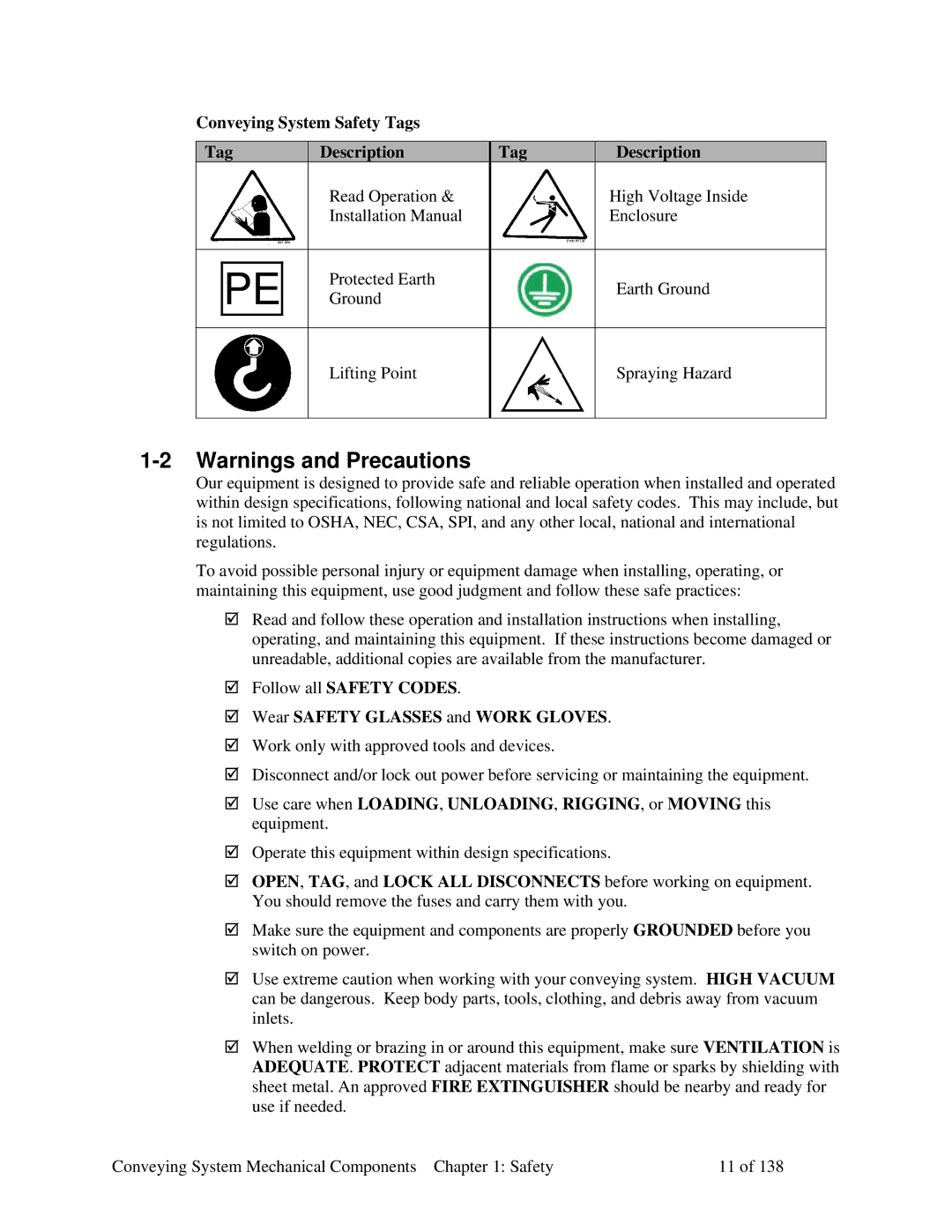
Conveying System Safety Tags
Tag | Description |
| Tag | Description | ||
|
|
| Read Operation & |
|
| High Voltage Inside |
|
|
| Installation Manual |
|
| Enclosure |
|
|
|
|
|
|
|
|
|
|
|
|
|
|
| PE |
| Protected Earth |
|
| Earth Ground |
|
| Ground |
|
| ||
|
|
|
|
| ||
Lifting Point
Spraying Hazard
Our equipment is designed to provide safe and reliable operation when installed and operated within design specifications, following national and local safety codes. This may include, but is not limited to OSHA, NEC, CSA, SPI, and any other local, national and international regulations.
To avoid possible personal injury or equipment damage when installing, operating, or maintaining this equipment, use good judgment and follow these safe practices:
þRead and follow these operation and installation instructions when installing, operating, and maintaining this equipment. If these instructions become damaged or unreadable, additional copies are available from the manufacturer.
þFollow all SAFETY CODES.
þWear SAFETY GLASSES and WORK GLOVES.
þWork only with approved tools and devices.
þDisconnect and/or lock out power before servicing or maintaining the equipment.
þUse care when LOADING, UNLOADING, RIGGING, or MOVING this equipment.
þOperate this equipment within design specifications.
þOPEN, TAG, and LOCK ALL DISCONNECTS before working on equipment. You should remove the fuses and carry them with you.
þMake sure the equipment and components are properly GROUNDED before you switch on power.
þUse extreme caution when working with your conveying system. HIGH VACUUM can be dangerous. Keep body parts, tools, clothing, and debris away from vacuum inlets.
þWhen welding or brazing in or around this equipment, make sure VENTILATION is ADEQUATE. PROTECT adjacent materials from flame or sparks by shielding with sheet metal. An approved FIRE EXTINGUISHER should be nearby and ready for use if needed.
Conveying System Mechanical Components Chapter 1: Safety | 11 of 138 |
